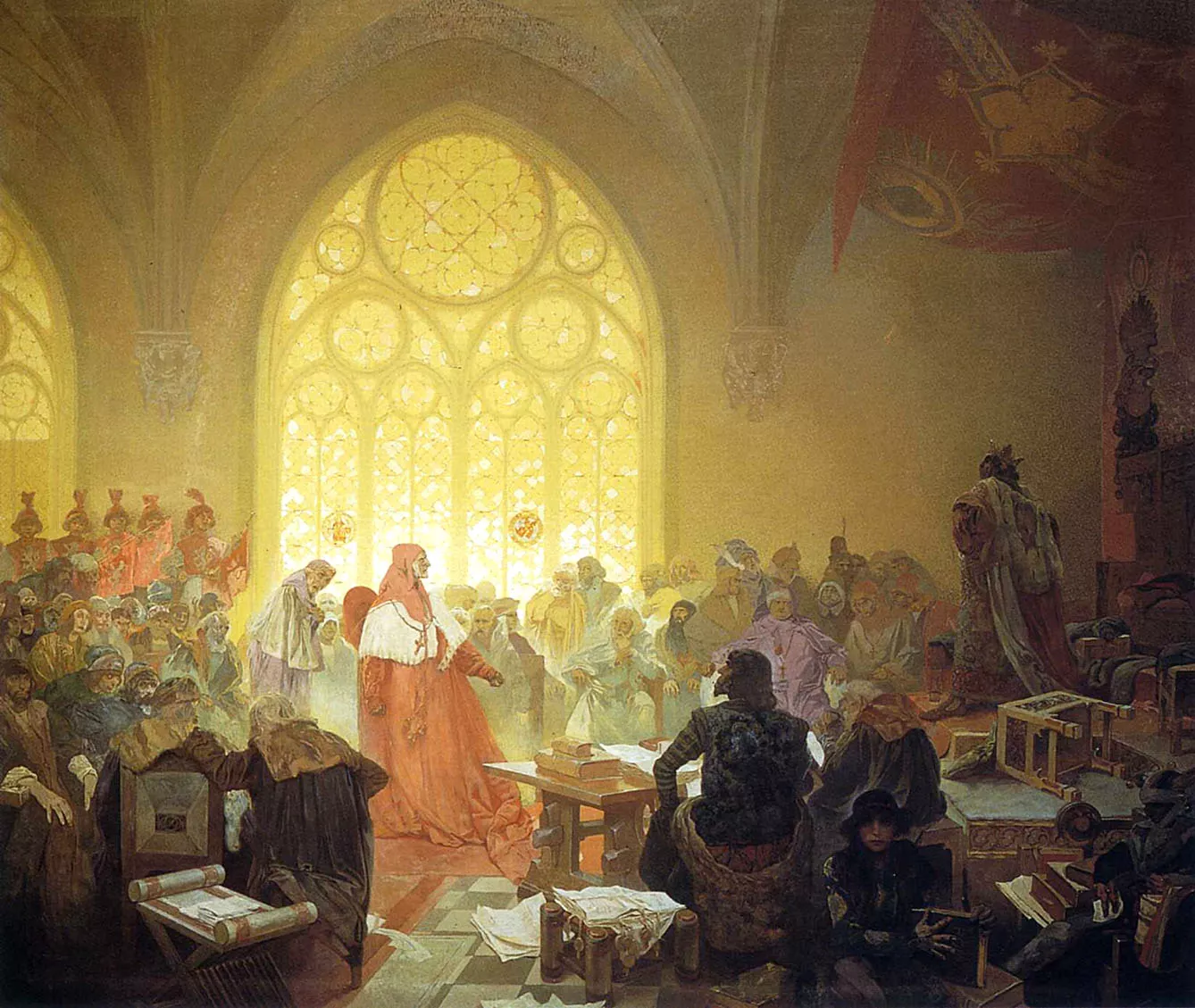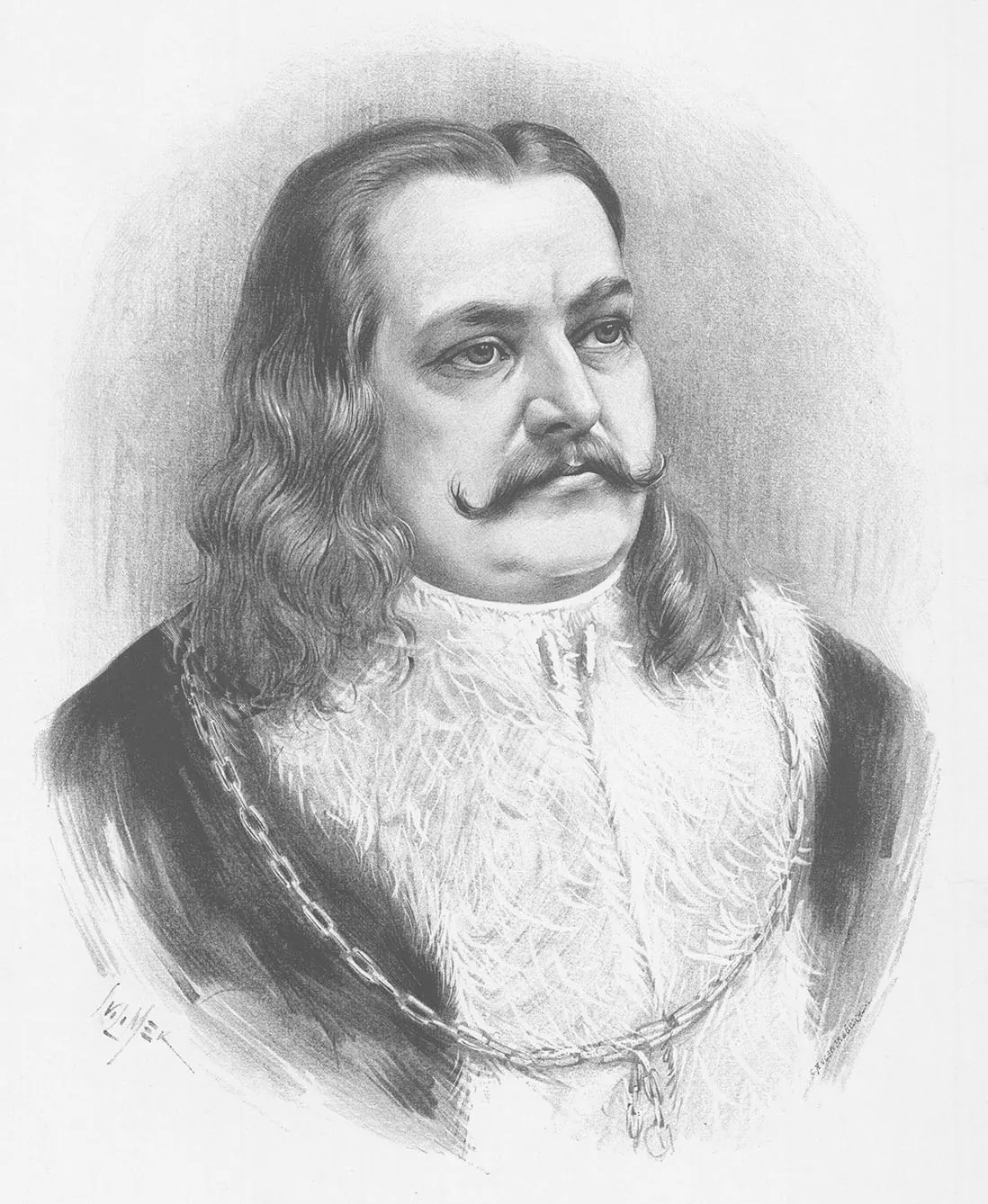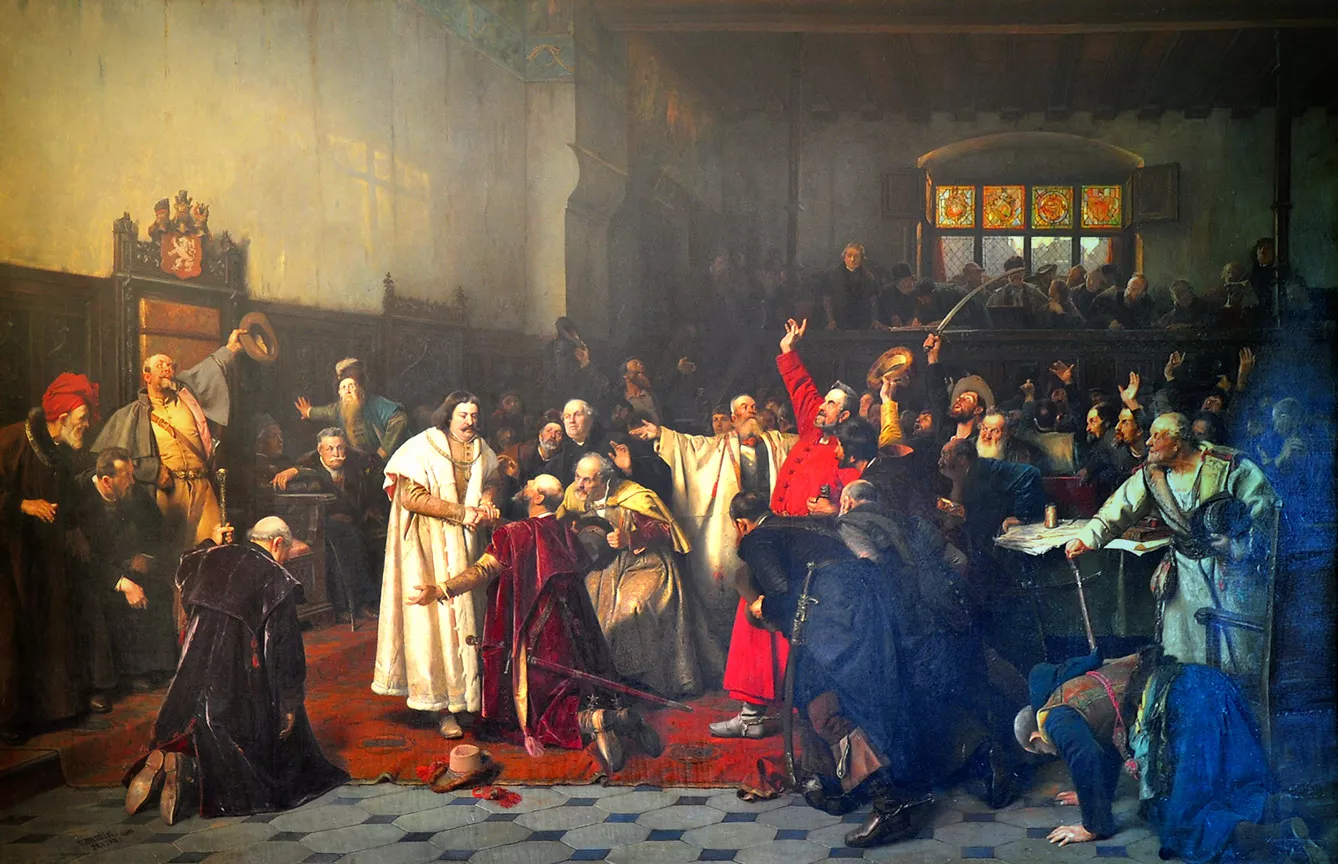The story of King George of Poděbrady takes us to the 15th Century Bohemia in today’s Czechia. The political situation in Bohemia was volatile during those times. The society was split, and the hate was fueled by a recent religious war between Hussite forces and Catholic armies. The Hussites, followers of Master Jan Hus, waged an armed insurrection in the hearth of Europe, intending to reform the Catholic church a century before Protestantism started.
Electing George of Poděbrady
After the sudden death of an interim King Ladislaus of Austria, the Czech Noblemen were met with a difficult choice; to elect the new King of Bohemia. Many were considered, including Casimir IV of Poland and Frederick III of Austria. Among those considered was a Czech Hussite Nobleman named George of Kunštát and Poděbrady, who was later coronated the sixteenth King Of Bohemia on March 2, 1458.


King George will eventually enter the history books thanks to his extraordinary efforts to preserve peace. He secured a fragile ceasefire between the Hussites and Catholics in the religiously divided Bohemia. He eventually brought the tolerance that secured him the nicknames “King of Two Peoples” and “Friend of Peace.”
Unfortunately, King George’s most “progressive” idea is rarely mentioned. But this idea alone makes him the most important ruler of his era.
Getting the Pope’s seal of approval
His project started with sending messengers to the most important person of that time, the Pope. The motivation of King George was clear. To prevent another crusade into Bohemia. Unsurprisingly, Pope Pius II did not agree to the Bohemian peace proposal. Surprisingly, on the other hand, no other campaign was launched during King Georges’s reign. Encouraged by this small success, more messengers were sent to European royal courts.
Unfortunately, phase two of his plan proved more than revolutionary for his time. He sent his diplomats to Major European Powers: Poland, Hungary, Germany, France, and Italy with a simple proposal. His idea was a treaty signed by all of the abovementioned Christian European Nations, which would prevent future bloody wars and conflicts.
All future wars, King George proposed, should be fought at the negotiation table from now on. The plan involved the creation of a parliament-like assembly with equal votes for all signatories and other administrative institutions. Sounds pretty much like the European Union; what do you say?
There are even more similarities! King George also proposed that there should be founding states, which we mentioned earlier in the article. If the union would prove efficient, an enlargement was planned. The first planned enlargement would include Hispanic powers (the Kingdom of Portugal and Spanish Kingdoms), and the second one other Christian kingdoms.
George of Poděbrady’s unanswered call
Sadly, nobody answered King George’s call for peace and unity in Europe. Many historians consider his radical proposal for this democratic union of kingdoms far ahead of his time. They are also adding that this proposal is the first historical idea promoting something we know as the European Union today.
Even though the European legacy of King George of Poděbrady is not embraced, his works in Bohemia are remembered. Bohemia flourished during his reign. King George is recognized as a wise and caring ruler. One of the significant Prague squares is named after him: Jiri of Poděbrady square, a favorite tourist attraction with a big church surrounded by a beautiful park, farmers’ markets, cafes, and restaurants.







